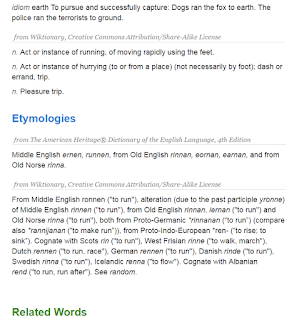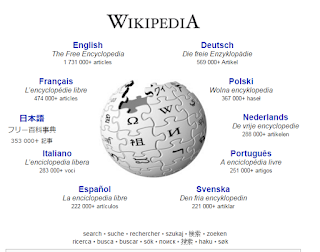I have written about this before in a different way and now I want to emphazise and go deeper in my thoughts about how we need to change teaching and learning in our schools all around the world. Th first thing we need to do is learn to not only accept change I think but also invit it, encourage it and welcome it- it is the one thing we know our children growing up today will meet.
Everything changes so fast around us. New things are invented and evolved. As the technological evolution keeps accelerating we need to adjust and adapt to the change of paradigm that is needed and most of all we need to prepare our children and let them build the key competences they will need to become world citizens when they grow up and being able to take the responsibility needed to build a sustainable society. Thomas and Brown talk about
A new learning culture in their book and it is well worth the time it takes to not only read it but also consider how it affects us in our profession. THe book upends our way of looking at teaching and is a mindbender that encourages us to think outside of the box. I totally agree with them concerning why learning is changing in the society and so also in our schools. The most important thing to cultivate within our students is their imagination and keep our minds playful, then we will be creative and can think creational and there will be no limit in what we can achieve. It is time for us to leave the old ways behind and embrace the changes that are already here. It is my strongest believes that we (all teachers and schools in the world) will succed in changing (not adding) our methods and ways of working and our view of learning and start working with blended learning, flipped classroom, open sources, mastery learning, gamified learning, and create learning environments that encourage our students to become curious and motivated. Those learning environments do not have to be at a certain place as I see it it can be anywhere we choose it to be. ICT will be of great help and we will know when we are there bcause our biggest problem will be: What are we going to do with all the time we have on our hands in school, no mor estress, plenty of time to help the students develop their skills for the 21st century. This we will grow into a few steps at the time I am sure, only we will all do it differently, with different approaches and there are no rights and wrongs here. The one thing that we cannot do is stand and watch the world move forward, we have to create this together with not only colleagues, but with our students and colleagues from all over the world. We need to share with each other, learn together and fail together. There is nothing wrong in failing, that is how we learn and develop our skills. To me failing is a success, it shows me new ways to do things, how I can approach them in new ways and what does not work. We find new solutions.
 |
Bilden kommer från:
http://www.dumpaday.com/quotes/quotes-of-the-day-21-pics-3/ |
We need to go from fixing a problem to grow a solution. This is exciting, thrilling but also scaring, it is therefor such a relief that we have each other. We do this beacuse we care, we care abut our students and their future. We need to teach the pupils to embrace change and in order to do so we need to become good rolemodels and start embracing changes ourselves. Today. Now. Together...
 How do you learn new words? How can we find out more information about a word? How can we support the pupils when thet learn new words? Our pupils need to learn many new words every day
How do you learn new words? How can we find out more information about a word? How can we support the pupils when thet learn new words? Our pupils need to learn many new words every day





